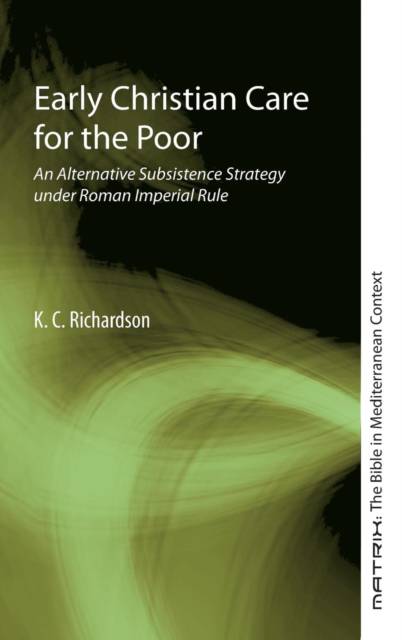
- Afhalen na 1 uur in een winkel met voorraad
- Gratis thuislevering in België vanaf € 30
- Ruim aanbod met 7 miljoen producten
- Afhalen na 1 uur in een winkel met voorraad
- Gratis thuislevering in België vanaf € 30
- Ruim aanbod met 7 miljoen producten
Zoeken
Omschrijving
Beginning with Jesus's ministry in the villages of Galilee and continuing over the course of the first three centuries as the movement expanded geographically and numerically throughout the Roman world, the Christians organized their house churches, at least in part, to provide subsistence insurance for their needy members. While the Pax Romana created conditions of relative peace and growing prosperity, the problem of poverty persisted in Rome's fundamentally agrarian economy. Modeling their economic values and practices on the traditional patterns of the rural village, the Christians created an alternative subsistence strategy in the cities of the Roman empire by emphasizing need, rather than virtue, as the main criterion for determining the recipients of their generous giving.
Specificaties
Betrokkenen
- Auteur(s):
- Uitgeverij:
Inhoud
- Aantal bladzijden:
- 238
- Taal:
- Engels
- Reeks:
- Reeksnummer:
- nr. 11
Eigenschappen
- Productcode (EAN):
- 9781498296540
- Verschijningsdatum:
- 3/08/2018
- Uitvoering:
- Hardcover
- Formaat:
- Genaaid
- Afmetingen:
- 152 mm x 229 mm
- Gewicht:
- 521 g

Alleen bij Standaard Boekhandel
+ 141 punten op je klantenkaart van Standaard Boekhandel
Beoordelingen
We publiceren alleen reviews die voldoen aan de voorwaarden voor reviews. Bekijk onze voorwaarden voor reviews.











